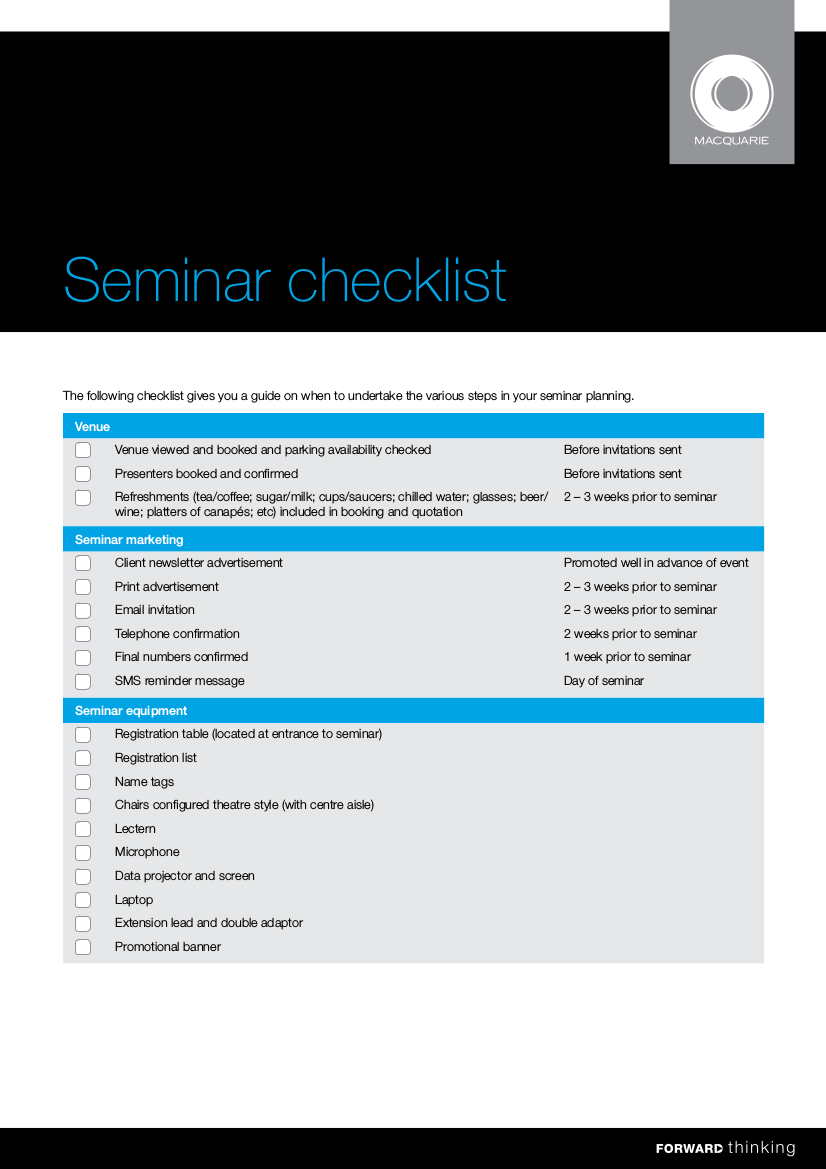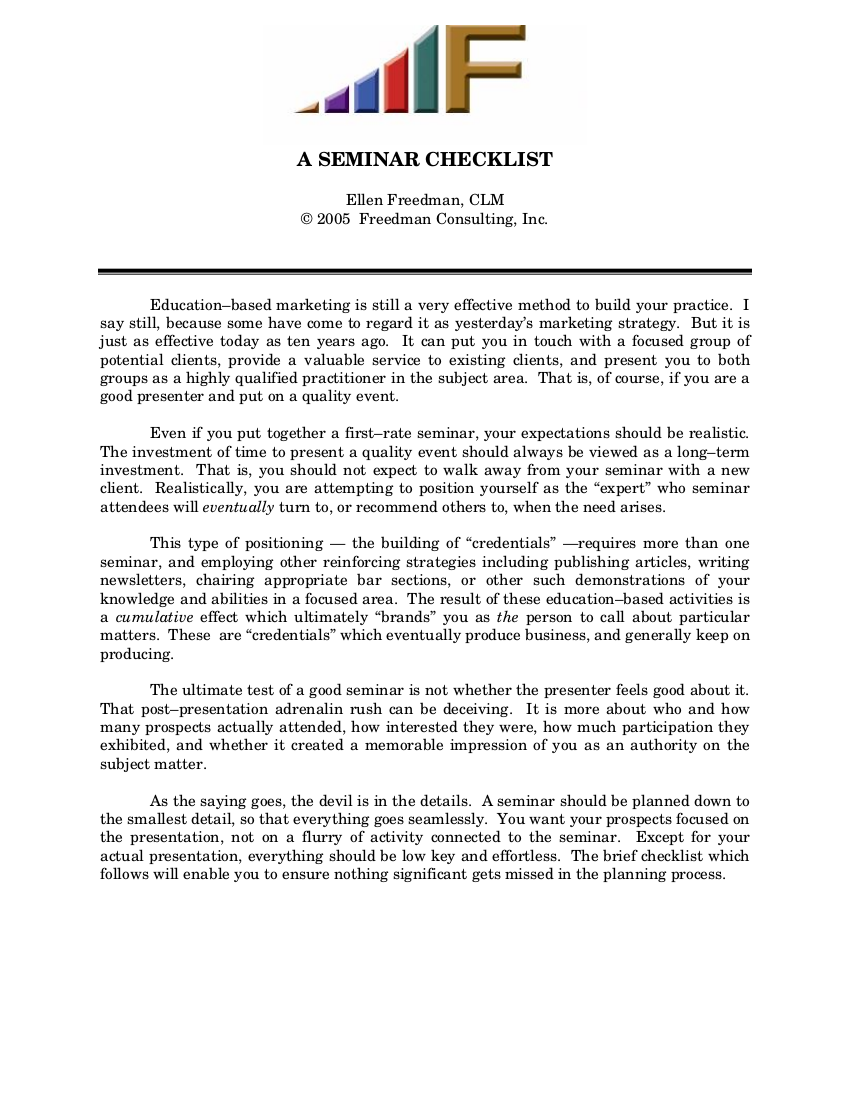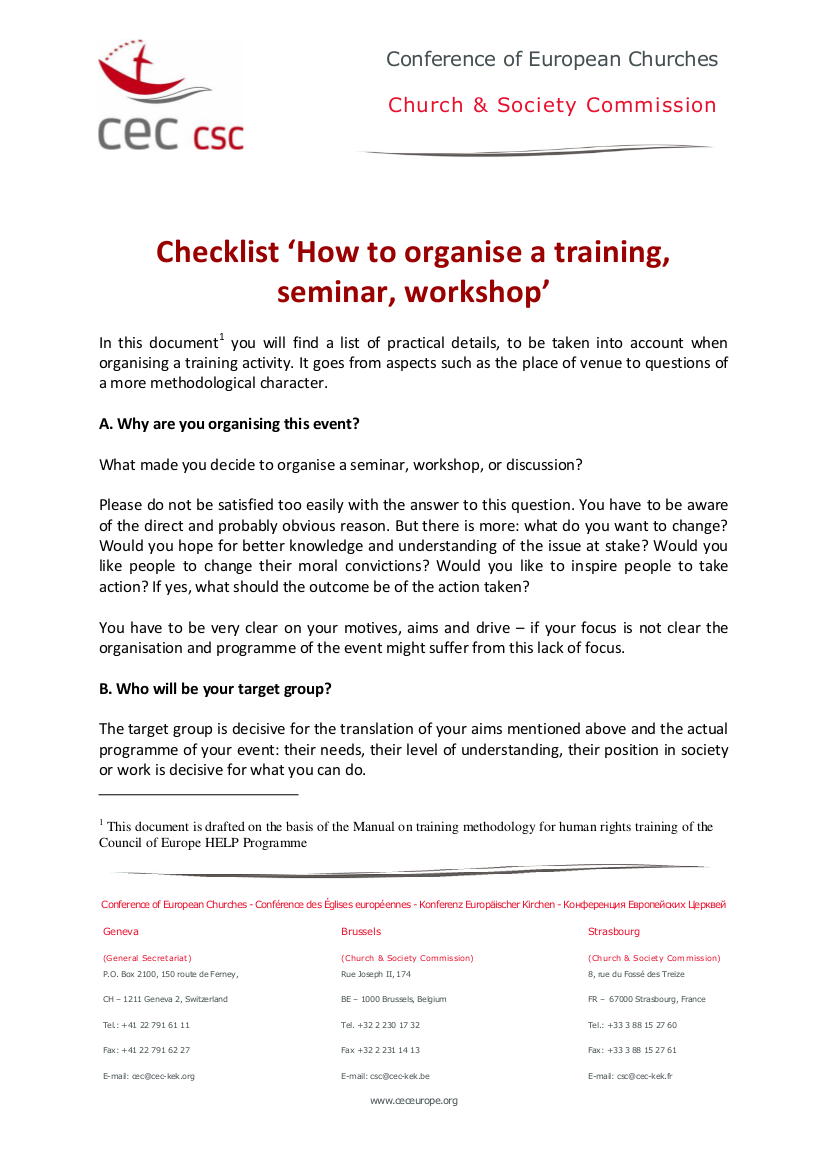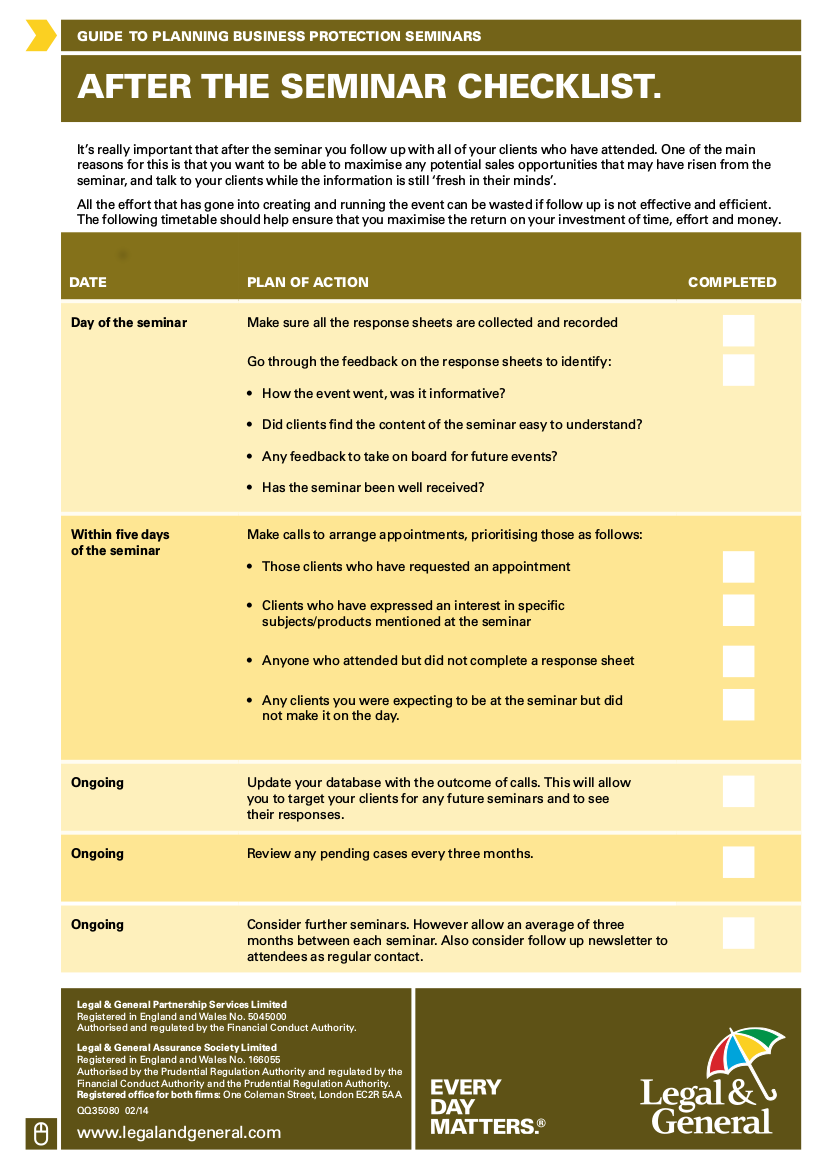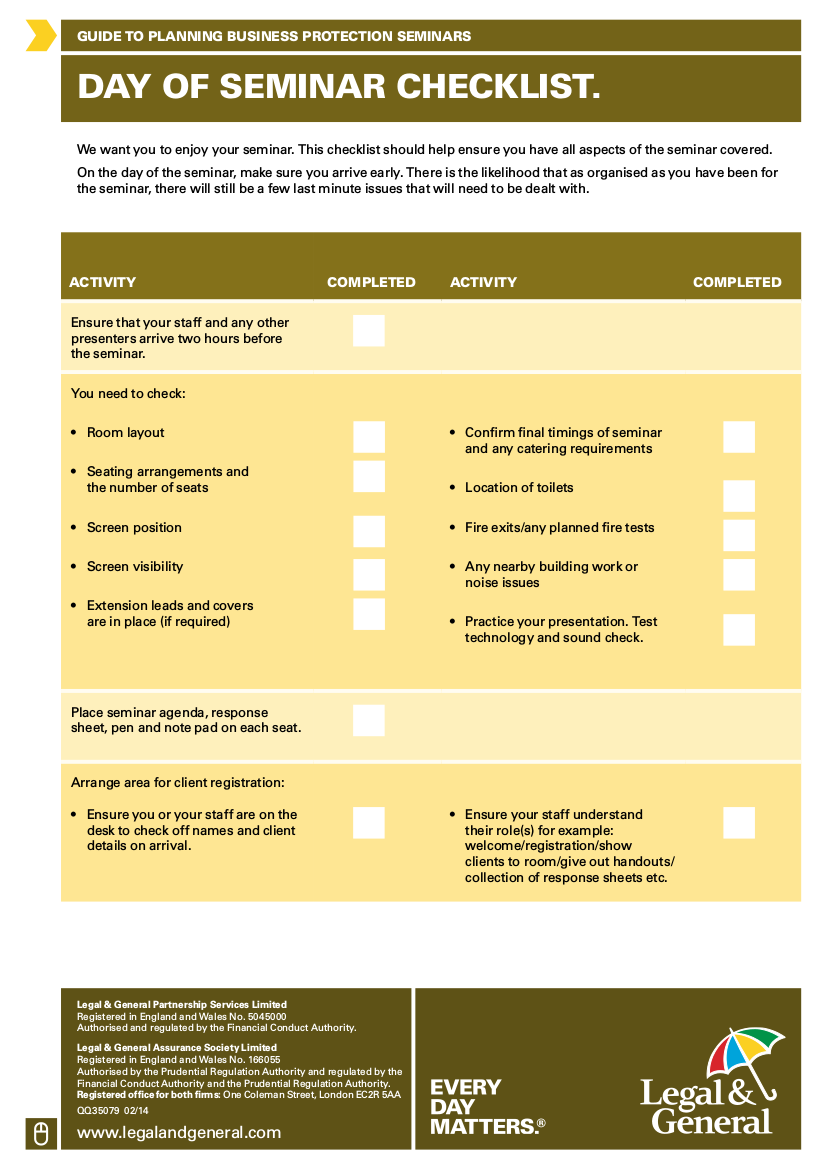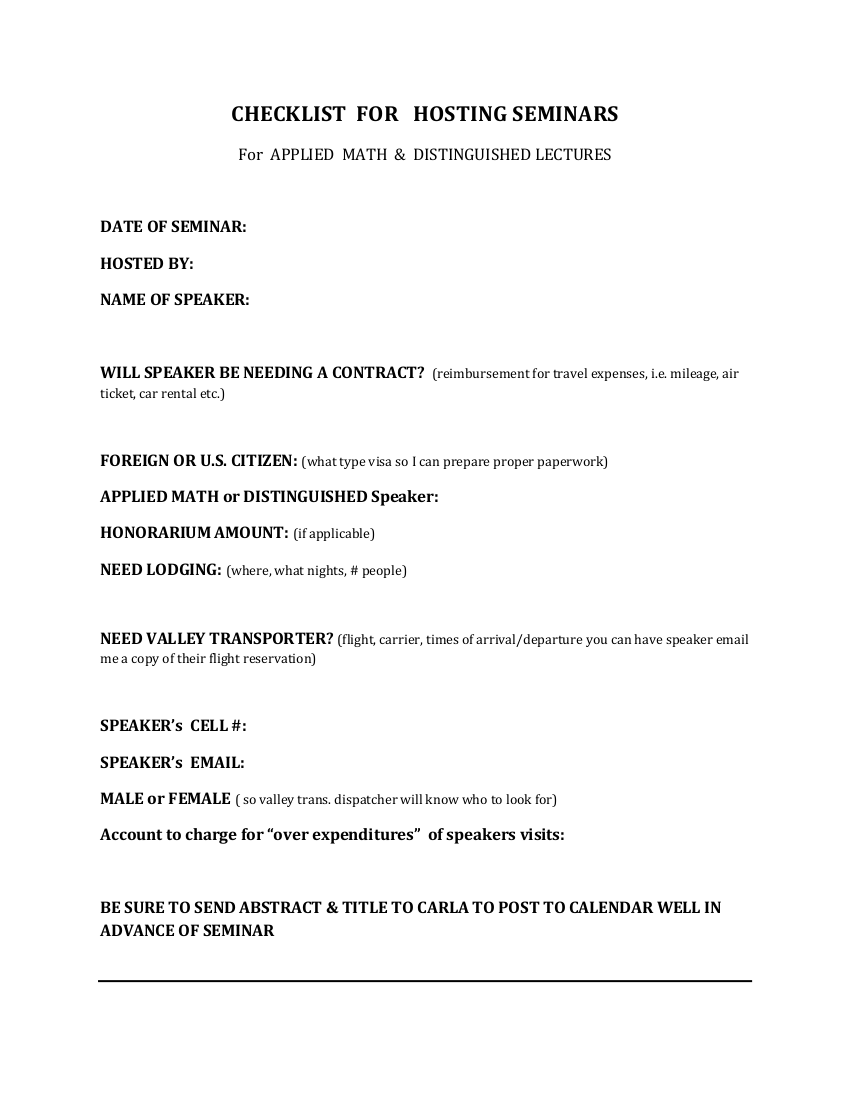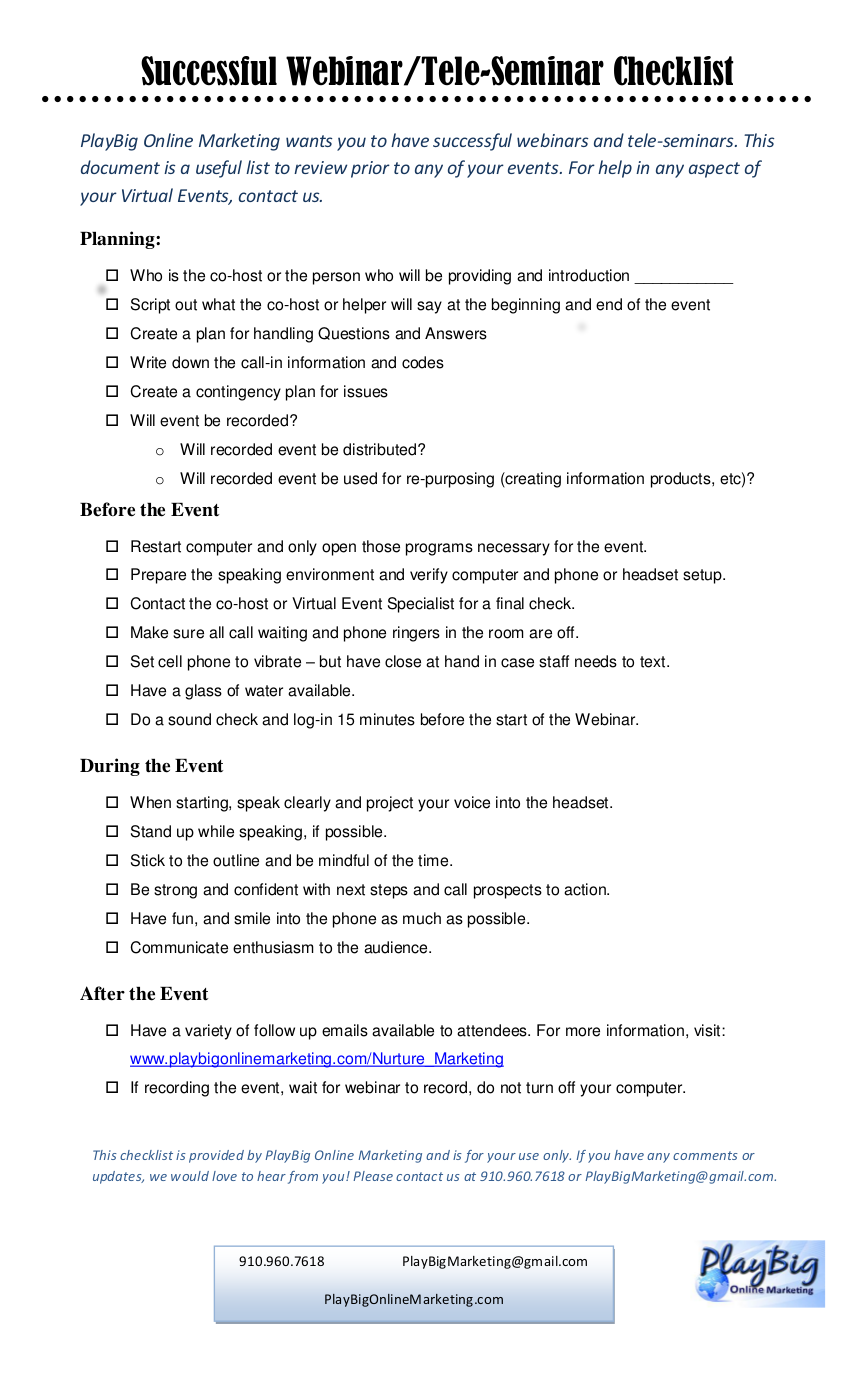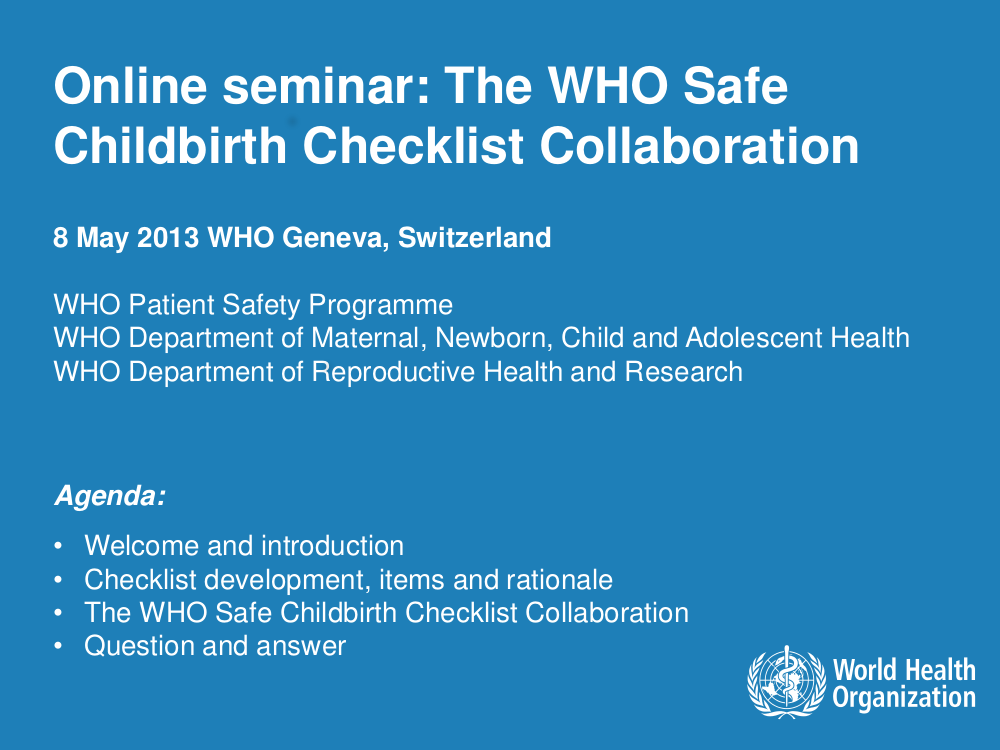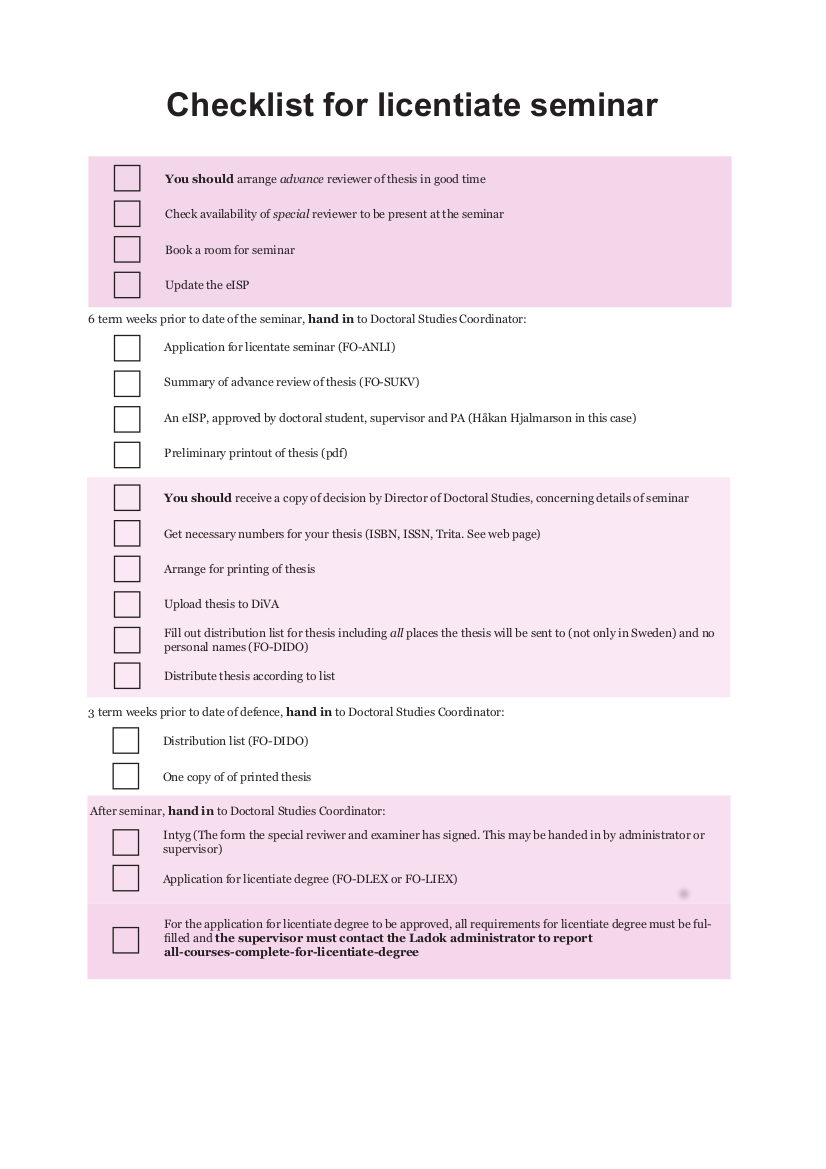10+ Seminar Checklist Examples to Download
Attending seminars may not be that entirely new to you. However, organizing seminars is a whole different world. To a participant, seminars may look easy on the surface but when you get to experience organizing seminars, you will start experiencing the agony of the process of planning and organizing one. This article will be of great use to both first timers and those who have experienced planning and organizing seminars. Here are ten seminar checklist examples that can be used as our reference when you would be making your own seminar checklists for a seminar you are going to organize.
Seminar Checklist Template
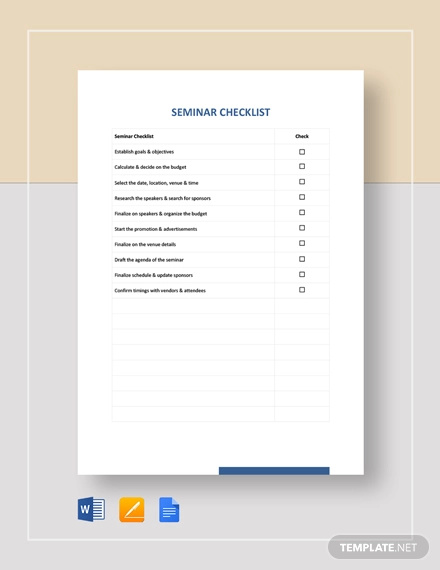
Simple Seminar Checklist
Checklist for Organizing Seminar

What Is a Seminar?
According to thebalance.com, a seminar sometimes referred to as a conference, is a commercial program where attendees are given information or training program.
Seminars would usually have attendees in groups of more than ten but no more than fifty and are often held usually in a hotel’s or restaurant’s function rooms or multimedia rooms in universities. It would usually take a half day or a whole day but there are special seminars where it would take more than two days.
Education Seminar Checklist
Conference Seminar Checklist
Business Planning Seminar Checklist
What Should Be on Your Seminar Checklist?
Organizing seminars can be a tedious job especially if you are tasked to be the head organizer or that you are the only one who is working alone for it. You would probably resort to making seminar checklists so you will be able to have a smooth flow of your preparation that will eventually result in a smooth flow of your actual seminar. Make sure you would include the following points in your sample checklist that can help you organize a successful seminar.
1. The Purpose of Your Seminar
Your purpose will serve as your guide throughout the seminar because this is the main reason why you are organizing a seminar in the first place. Make sure you have clearly defined the purpose of your seminar. If you want to improve or enhance the caliber of your employees, then make this your purpose and give this a deeper detail.
2. The Target Attendees and Speakers of Your Seminar
When you have thought of the purpose of your seminar, you might have already figure out your target attendees as well as the speakers that are perfect for the purpose and topic of your seminar. Send out invitations to a school if you are going to organize an academic seminar or make a memorandum for your employees if you are going to hold a personality development seminar or a business seminar. Before the seminar would start, make sure you provide information sheets so that your attendees can put on their basic details for registration. Make sure your speakers are fit. expert or qualified to be the speaker at your seminar. Just imagine a doctor assigned to a technology or business-topic.
3. The Topics of Your Seminar
This is the critical part of your seminar preparation. If seminars are compared to a whole roasted pig, the topics of your seminar are that of the meat of the roasted pig. Make your seminars packed with topics that are useful for the attendees. Also make sure thaImagine eating something that is nothing but bones, of course, you could not eat anything at all. Imagine eating a raw meat; that is like listening to a speech or talk at a seminar that is not prepared well. Also, imagine eating a rotten meat; that is like listening to a speech or talk at a seminar where you cannot get any enrichment or learning from.
4. The Venue of Your Seminar
There are a lot of seminars conducted that were not successful because of the venue. It is because some organizers were not able to secure the reservation of their venue. And even if there are some who have been able to reserve a venue, they were not able to have good relations with the owner or manager of a particular venue that is why it often leads to a last-minute venue change that most attendees were not able to agree on and informed about. That is why you have to make sure that you have secured well your venue because even if you can always change the venue and that the venue is not that much of a big deal, it is still a factor to the success or failure of your seminar. Some attendees are also nitpicky on seminar venues and your satisfaction is somewhat your priority that is why you have to make sure that you do not only secure and reserve a venue but you have to make sure that your chosen venue is appropriate and pleasing to the attendees.
5. The Necessary Equipment and Materials Needed
You might think that what only happens in a seminar is just a talk and you would only need your speakers’ speech to make the seminar a success. That is wrong because in a seminar there are a lot of other things that you need to secure. You need a microphone for your speakers so that they can be heard in every nook and corner of the venue. You need the literal speakers for every corner of the venue and if your venue does not provide one, make sure it is included in the reservations since there are venues who would require a separate reservation for the equipment used. You might also need a projector and the projector screen since most of the speakers would make use of a visual presentation speech of their talk. You might need extra lights if you want to have some dramatic effect lighting on the stage or that you want a spotlight to be directed to the speaker. You might also need stationery and other writing materials. If you require your attendees to wear an identification card during the event, you would need to secure the Id cases and Id slings. If you are the type of organizers who like to give out giveaways of your seminar, then make sure you have already laid out all the possible giveaways. There are some organizers who would give out a bag of goodies containing already the certificate of attendance of the event and other unique or even common items such as pens and notepads. It’s really up to you on what other materials that you should be bringing. As an organizer, you might already know what materials and equipment you would likely need before, during, and after your seminar. Make sure you already have all materials and equipment needed for the seminar to avoid mishaps. Who knows; the absence of a tape and marker can stall the seminar for an hour.
6. The Program Flow of Your Seminar
Aside from making your seminar organized, program flows are often asked by the attendees and even the speakers of the event who would want to stay and listen throughout the seminar. There are a lot of seminar attendees who would really ask organizers of the program flow of your seminar so that they will be guided on who will be delivering the speech and at what time the seminar will start, take a break, and end. Make sure you are prepared for this and provide the attendees and speakers the program flow of your seminar. Before sending it via email or in physical copies, also make sure that it has already been finalized and whatever changes in the event should already be in their copies of the program flow. Otherwise, inform them via text message or email in advance or announce it before the seminar starts so that they will be guided and informed.
Day Seminar Checklist
Checklist for Hosting Seminars
Checklist for a Successful Webinar
Checklist for Online Seminars
Checklist for Licentiate Seminar
3 Common Kinds of Seminar
If you are stuck on thinking what kind of seminar you should be organizing, here are the three kinds of seminars commonly organized that you can take note of:
Personal Development Seminars
If you are a business owner and you would want to improve and enhance the caliber of your employees. then personal development seminars are perfect for you to organize.
Business Seminars
If you are a business owner, again, or someone who is in the business, business seminars often contains topics that are solely in the business world. But these topics may not only tackle solely on serious business topics, it could also include success stories of business persons.
Academic Seminars
Academic seminars are other ways for an individual to learn something outside the walls of a classroom. It is also less formal compared to usual class lectures. Academic seminars would often stretch out the topics being discussed in the classrooms and tackles it at a deeper angle that would also equally deepen the students’ or attendees’ understanding and knowledge of a particular topic.



